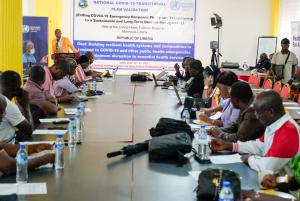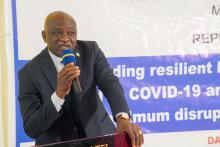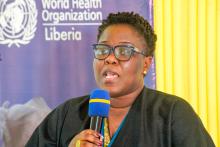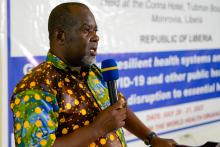Building Health Resilience: Liberia Develops a Comprehensive COVID-19 Transition Plan
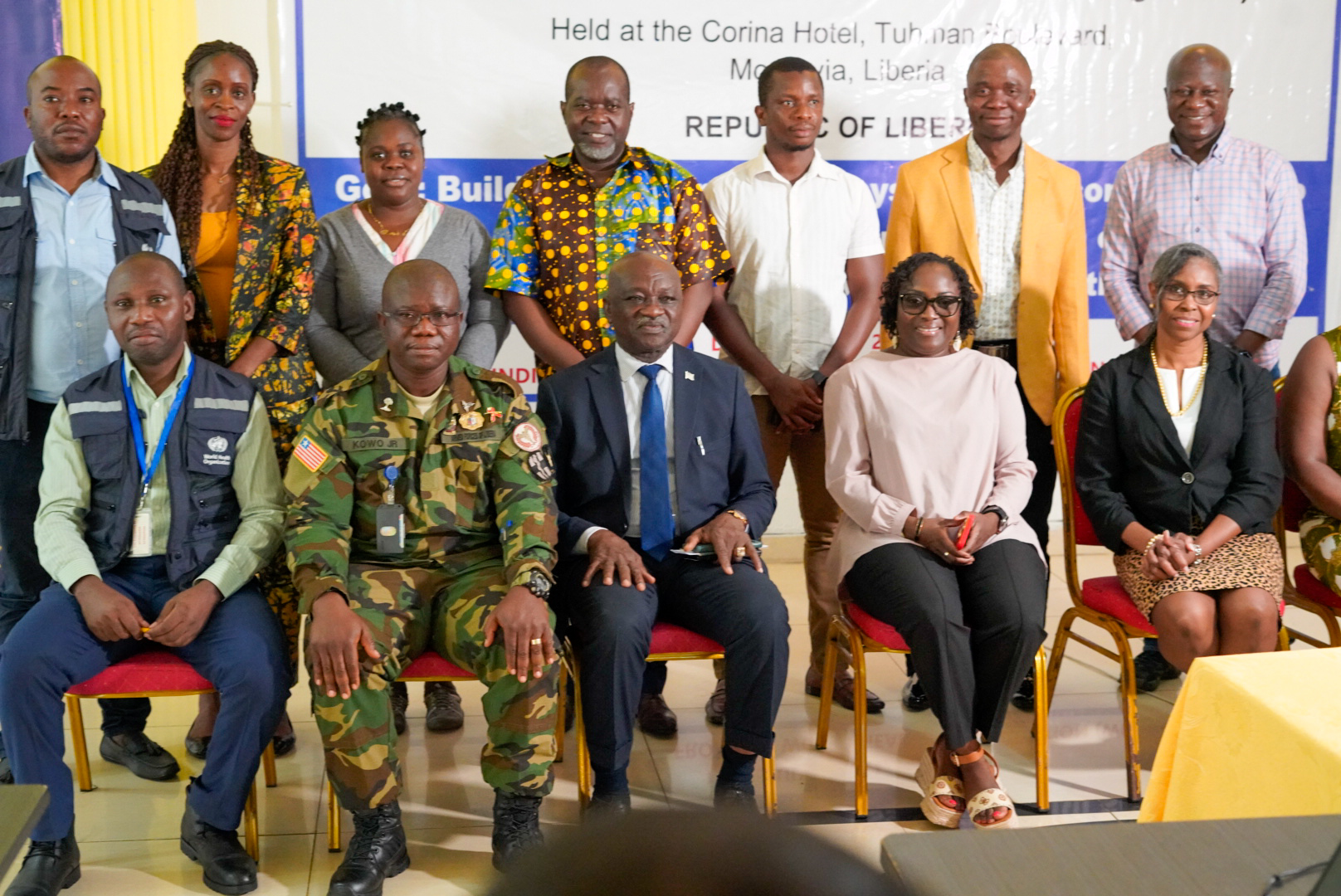
Monrovia, 24 July 2023 - Liberia has been battling the COVID-19 pandemic for over three years since the first case of SARS-CoV-2 was reported in the country on 16th March 2020. The government has tirelessly worked to implement life-saving solutions, resulting in 84% of the population completing the primary series of COVID-19 vaccinations as of 5th May 2023. The lessons learned from managing COVID-19 have emphasized that health is not just central to development but also fundamental to the economy and society's livelihoods. Liberia's COVID-19 landscape has witnessed significant changes, with data indicating a decline in new infections, no recorded deaths, hospitalizations, or ICU admissions for over the past twelve months.
However, uncertainty prevails regarding the eradication timeline of COVID-19. The ultimate control measures rely on vaccines, therapeutics, and surveillance through the Integrated Disease Surveillance and Response (IDSR) system. As of May 2023, newly reported COVID-19 cases have been decreasing, with an average of 20 to 40 cases reported monthly from January to May 2023. Since the index case confirmation in March 2020, 8,155 confirmed cases and 294 deaths have been recorded, with 96.4% of cases having recovered.
It has become evident that COVID-19 is unlikely to be eradicated in the short term, and its impact on routine health services, as well as socio-economic aspects, continues to be significant. This challenging scenario is compounded by limited national resources and diminishing international financial assistance, making it increasingly difficult to sustain a parallel response to COVID-19 and routine health services in the long term. Recognizing the pressing need for sustainable solutions, the alignment and integration of COVID-19 interventions into routine health services have emerged as one of the key priorities, adding significant value to the health sector.
In light of these considerations, the Ministry of Health with support from the World Health Organization (WHO) and funding from the European Union (EU) gathered stakeholders in health sector over the past week, to develop the COVID-19 After Action Review (AAR) which has informed the development of a National COVID-19 transition plan that draws from the lessons learned during the COVID-19 response. The implementation of the Transition Plan intends to integrate the COVID-19 response seamlessly into routine health services, ensuring Liberia's health resilience against future health challenges at both national and subnational levels.
This two years (July 2023 to June 2025) national transition plan outlines a comprehensive roadmap for transitioning from the acute phase of the COVID-19 pandemic towards a sustained response and recovery in order to strategically and sustainably invest in resilient health systems able to respond to public health emergencies while maintaining essential services at all times.
The plan is based on the WHO guidance of five central components: 1) Emergency coordination; 2) Collaborative surveillance; 3) Community protection; 4) Safe and scalable care; and 5) Access to counter measures instead of the twelve emergency response pillars. WHO has recommended that member states transition the COVID-19 emergency response towards resilient health systems to achieve Universal Health Coverage (UHC), strengthen the Health Emergency Preparedness, Response and Resilience (HEPR) and address future public health crises.
The acting Minister of Health Ms. Howard Nowu, stated that as the country enters the new phase of long term management of COVID-19, there’s a need to learn to live with the virus thus, integrating COVID-19 management and control into broader prevention and control programmes is very critical, grounded on the principles of Primary Health Care for a more resilient health system to effectively address future health shocks, while maintaining optimal provision of routine health care to all.
Representing the Minister of Foreign Affairs, Ambassador Lawrence Amaji- thanked all the front liners who work tirelessly during the response.
“Thank you for working exceedingly hard to bring us to where we are as a country. Our plan should propose strong actions that will solve all or minimize all the threats to our health”, he said.
Acknowledging the importance of the plan, the AFENET Liberia- Resident Advisor Dr. Maame, appreciated the collaboration of Ministry of Health and partners in the important process.
“We appreciate collaboration with Ministry of Health, National Public Health Institute of Liberia (NPHIL), and all partners. With the current capacities built in all 15 counties through Field Epidemiology Training Program (FETP) will go a long way in keeping Liberia safe- Our response to COVID-19 was different from what we experienced during the 2024 EVD Outbreak, this is very encouraging”, said Dr. Maame.
Representing the Armed forces of Liberia, Lieutenant Colonel, Joseph Kowo, emphasized the need to catalog the role of joint security especially the military, during emergencies into the plan highlighting the impact of the military.
“As we transition, we need to highlight best practices of security during the COVID-19 response. The military system is a system that we all need to build to ensure guaranteed support during emergencies and build a resilient health system”, said Colonel Kowo.
This plan is a call to action for building resilient health systems that address future public health crises, while securing essential public health functions and maintaining continuity of quality health care services. The synergistic nature of health system strengthening and emergency preparedness capacities is such that investment in one will benefit the other, with a potential return on investment
in terms of financing, human resource and infrastructure.
“As our country emerge from this crisis, now is the moment to invest and sustain the gains made during the pandemic response and apply the lessons learned and capacities built from this pandemic and other recent health emergencies, to increase the resilience of our health system against future epidemics, pandemics and other shocks”, said Dr. Monday Julius-Team Lead for health emergencies -WHO-Liberia
“We remain committed to support in accordance with our mandate to enable the country to build a resilient health system”, said Dr. Monday.
Copies of the plan will be disseminated to relevant stakeholders and communities for their guidance and reference. The plan will enhance the country's preparedness, resilience, and ability to tackle not only the current pandemic but also future health threats. WHO, along with USAID and other partners, remain committed to supporting the government of Liberia's COVID-19 response at national and subnational levels, further strengthening Liberia's health system and safeguarding the well-being of its citizens.
